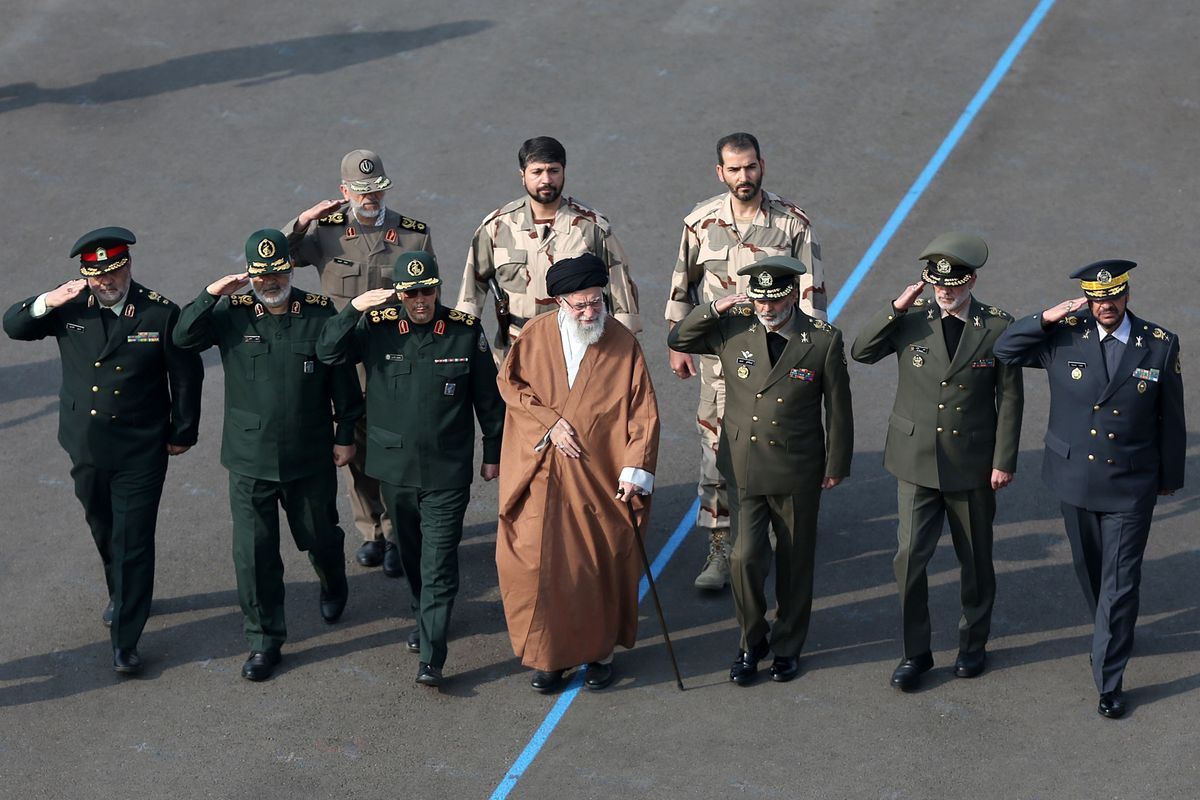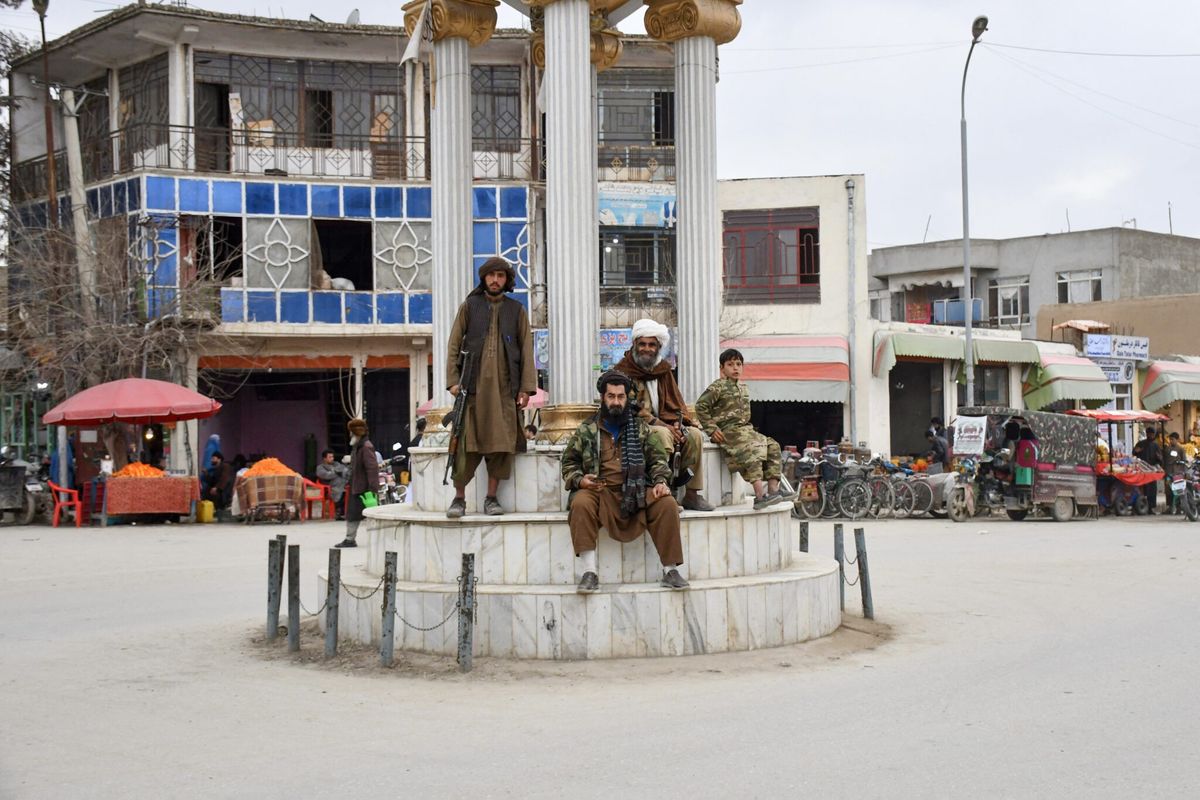The concept of regime change – toppling a hostile or distasteful foreign government and replacing it with a friendly one – has long tantalized U.S. policymakers, inspiring covert actions like the U.S.-supported Iranian coup in 1953 to U.S. military invasion and occupations, such as Iraq in 2003. Under the Trump Administration, this impulse to more forcefully shape the world to U.S. interests has been directed at the rogue North Korean regime of Kim Jong-un and its nuclear weapons program, and the Islamic Republic of Iran, which seeks to extend its growing influence throughout the Middle East and tug at the threads of its nuclear deal with the West by pushing its ballistic missile program forward.
However, this kind of external regime change has often resulted in failure and disappointment. Even when the foreign regime is successfully overthrown – often not the case – the result has consistently been civil war or insurrection, not democracy.
There are numerous examples – most recently in Afghanistan, Iraq, and Libya – where attempts at regime change backfire, triggering protracted internal power struggles, abusive clampdowns on dissent, and even full-scale insurgent campaigns, which draw the intervening states into unwinnable wars. Yet the exact drivers of these consequences are hard to foresee, let alone prevent.
For example, when Washington backed the 1953 coup that replaced Iran’s elected Prime Minister Mohammad Mossadegh with the Shah Mohammad Reza Pahlavi, it was in part due to misplaced fears over Mossadegh’s connection to the Soviet Union. That effort was, at the time, successful, but today we can see that this kind of covert action has ripple effects that go far beyond the 1979 Islamic revolution in Iran. They reach all the way to present disputes – 65 years later – over Iran’s nuclear program and its expanding adversarial influence in the region. The 1953 coup has permanently colored Iranian perceptions of the U.S.
“Regime changes are enormously consequential, and they set in motion a series of events that take place not on the second or third order, but on the 30th or 40th order,” says Ryan Crocker the former U.S. Ambassador to Afghanistan and Iraq. “The more the U.S. president spins up the rhetoric, the more Tehran remembers 1953 and the more determined they are to ensure they surrender nothing of consequence, militarily or politically.”
Part of the historical fallout of the Iranian coup can be attributed to its covert nature. Covert regime change operations are meant to remain secret but that seldom, if ever happens. Instead, the diplomatic fallout and decline in legitimacy a new regime will be met with is often greater than they can endure without the eruption of widespread internal violence. Furthermore, a covert hand does not allow for the intervening state to tangibly assist in the transition of power. “Unfortunately, many times covert action toward regime change has been defined historically as change for change’s sake,” Robert Richer, the former Associate Deputy Director for Operations at the CIA, told The Cipher Brief. “That is a problem.”
Only overt military intervention and long-term occupation backed by an enduring political will at home to see the job through can give the U.S. the access it needs to effectively rebuild the political order it seeks to establish. Even then, by the very nature of foreign military occupation such efforts often fail, despite massive reconstruction and development assistance.
“My experience has led me to be very very cautious on this. If you’re thinking of changing a regime, you had better be absolutely certain that the evil which will ensue if you don’t is of sufficient magnitude that you literally have no other choice,” says Crocker. “We’ve tried overt regime change followed by occupation in Iraq, and it was not so great. We have tried overt regime change not followed by an occupation, which is also not brilliant. And we have tried effecting neither regime change nor having an occupation in Syria. There are, in short, no good options.”
While the challenge of a peaceful transition of power following overt regime change is pervasive throughout history, there are lessons to be learned. Perhaps most notably, is the need to provide an external military presence – through United Nations peacekeeping or a coalition military occupation – to respond to and deter violent resistance, as well as build confidence among civilians and those seeking to take part in the transitional governance.
This is particularly true if there are numerous militant groups party to the conflict. In that case, the need to enable a credible security guarantee during negotiations over demobilization, disarmament, and reintegration programs (DDR) as well as to provide training for security sector reform (SSR) is greater. Such programs would be vastly difficult in a country such as North Korea where there is systemic inclusion in the military for those who prove loyal to the regime of Kim Jung-un.
“Security and the deterrence or defeat of local violence and incipient insurgency is the first priority of any reconstruction or nation-building effort,” says James Jeffrey, the former U.S. Ambassador to Iraq and Turkey. “Without security, the effort is physically undercut by attacks on local leaders, infrastructure, and economic activities – the building blocks of state building and reconstruction – and politically, by demonstrating incompetence and a potential lack of commitment. Only the outside military force itself can, initially, provide that.”
Furthermore, it’s difficult to begin political reconstruction with a clean slate. Success often depends on working within the systems and infrastructure already in place. While seemingly contradictory, there is a particular need to reintegrate members of the former regime that have been removed from power into the new transitional authority. For example, following the reconstruction efforts after the fall of Nazi Germany during World War II, Allied Forces eventually chose to not completely exclude all Nazi party members from public service – perhaps a mere practical tactic or a recognition that their party membership was an affiliation expected of them within the society at the time.
Following the overthrow of Saddam Hussein’s Ba’ath Party in Iraq in 2003, the Bush Administration banned Baathists from public service – even including schoolteachers – and disbanded the Iraqi army rather than purge it of Hussein’s loyalists and use it as a key part of the stability operations that followed. Many disillusioned and unemployed former Ba’athists quickly joined a growing insurgency and crossed over into Syria where they later became the organizational backbone of ISIS.
“Where those infrastructures were torn apart, such as in Iraq with the demolition of the military and Ba'ath Party, two interlinked phenomena occur: the basic organizational tools of any reconstruction are eroded, and a typically competent and patriotic cadre find themselves unemployed, betrayed, resentful, and easily exploit the collapse of governmental organization to mobilize populations against the occupier, politically or violently,” says Jeffery.
The U.S. as a foreign intervener is alien to the political culture of the countries it seeks to effect regime change in. “The U.S. viewed Iraqi society through the prism of ‘ancient hatreds’ between its different communities,” says Emma Sky, the former advisor to the commanding general of U.S. forces in Iraq. “In the establishment of the Iraqi Governing Council, the U.S. made sect and ethnicity the primary organizing principle. In so doing, the U.S. unintentionally formalized and exacerbated the divisions. Focus was placed on sub-identities, rather than national identity.”
How the U.S. gives ownership to locals during the transition of power is not only key for the regime’s internal legitimacy, but also to maintain that regime after the inevitable U.S. withdrawal.
“Almost universally, a critical failing of these types of programs of regime change has been identifying the right successors, and ensuring that they had at least some buy-in that would allow them to get a foothold and some popular support moving forward,” said Richer.
Foreign-imposed leaders established within a new democracy often must answer to two masters – the U.S., which put them in power, and their own citizens, who they represent.
Following the short-lived stability brought upon by the Surge in Iraq, “things fell apart again when the U.S. failed to upheld the results of the 2010 national elections,” says Sky. “Instead, the U.S. insisted that former Iraqi Prime Minister Nouri al-Maliki was ‘our man’ - and tried to keep him in power regardless of the election results, the warnings from Iraqi elites, and ample evidence of his authoritarian tendencies.”
Perhaps most importantly, regime change does not occur within a geopolitical vacuum. There is opportunity in another’s uncertainty, and regional and international players will seek to capitalize on the insecurity that follows U.S. regime change efforts, adding their influence to the mix. Countries such as Iraq, Syria, Afghanistan, and Libya have all become enmeshed in the interests of competing foreign nations. It is likely that others, such as China and Russia, are better positioned to influence the outcomes of forceful regime change in Iran and North Korea.
Building strong and widespread coalition of partners can help alleviate some of the prohibitive demands of regime change – both in terms of money and political will – and garner international legitimacy. But doing this seldom mitigates the proxy wars that so often emerge from such destabilizing efforts. How well the U.S. is able to preempt the consequences that come the day after regime change and adapt to them will determine how successful it is in solidifying the government they want to see in a country.
Levi Maxey (@lemax13) and Fritz Lodge (@FritzLodge) are analysts at The Cipher Brief.













